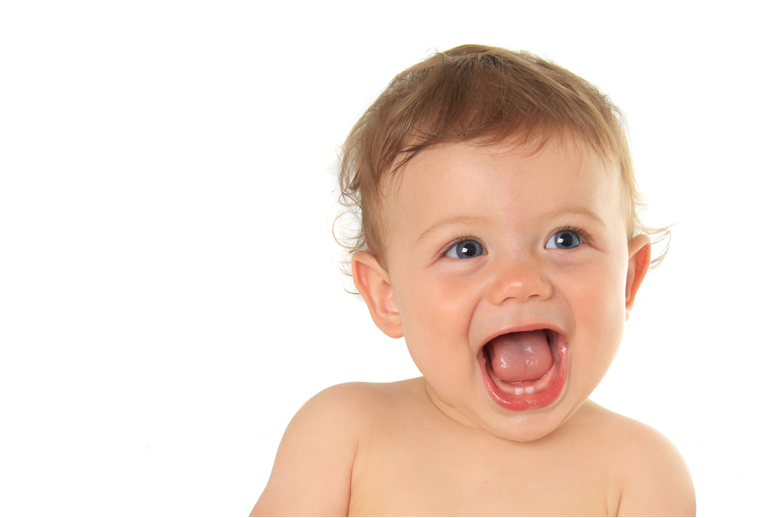How To Look After Your Baby’s Teeth and Gums

As a new parent, you may be wondering how to care for your baby’s teeth and gums. Even if your baby doesn’t have teeth yet, it’s still important to look after their oral health. In doing so, you’re creating the best environment for your baby’s teeth to grow into. At Whitehorse Dental, we are passionate about educating and promoting healthy teeth for people of all ages.
In this article, we discuss how you can look after your baby’s teeth and gums to give them the best start to achieving lifelong oral health.
Caring for your baby’s gums (under 6 months)
Even though your baby may not have teeth yet, you can still begin to look after their oral health. We recommend using a soft, damp cloth to gently wipe their gums once a day (preferably after feeding). This not only cleans their gums but also gets them used to having their mouth cleaned. They should begin to associate the sensation with a pleasant feeling, which makes introducing toothbrushing later on much easier.
It’s important to remember that the bacteria in your mouth is very different to your newborn baby’s. Unfortunately, you can pass on bad bacteria to your baby. So that your little one doesn’t get bad bacteria from you, or grow up with unhealthy habits for teeth, this may be a reminder to get on top of your own oral health, and set up both yourself and bubs with better oral health habits for life!
How to care for brand new teeth (6 months to 1 year)
You may notice little teeth starting to come through at about six months of age. As soon as you notice them poking through you can begin to clean them with a damp cloth. You should aim to do this a couple of times a day. You may also like to introduce them to a soft, baby’s toothbrush at this stage- just let them play with it and chew on it.
Brushing your baby’s teeth (1 to 3 years old)
Most of your baby’s teeth come through by the age of two. Once the baby back molars come through you need to start brushing them with a proper toothbrush. We recommend you start by brushing your teeth in front of them first. Children learn by copying, and they need to see you taking care of your oral health. Once they’ve seen you brush your teeth you can brush theirs. The easiest way to do this is to have them stand face to face with you, rather than using a mirror reflection. Gently brush their teeth, talking and reassuring them the entire time.
Your little one may become wriggly and restless so it’s important to remain patient. You can sing a little song whilst brushing or make it into a game. It’s important to reinforce teeth brushing as a positive experience. Use a rice grain amount of children’s toothpaste. This is such a small amount, that the fluoride content is safe and beneficial for your child, rather than harmful. Using the right amount of toothpaste while supervising your child means you don’t have to worry if they don’t spit out the toothpaste. Non fluoridated toothpastes and ‘natural’ toothpastes give the teeth very little benefit so it’s best to either stick to fluoridated toothpastes or no toothpaste at all.
Why is oral health so important for children?
42% of Australian children have tooth decay. Baby teeth are placeholders for adult (permanent) teeth that usually don’t get fully replaced until your child is as old as 12 years of age. Alarmingly, we have seen children as young as 2 years old have tooth decay due to unassuming habits from when the child was a baby, which can lead to heartache and pain for both parents and bubs.
We need to keep these baby teeth healthy to keep your child pain-free, and minimise damage to the adult teeth below until they are ready to be wiggled out! They say that old habits die hard, so here are some other reasons why getting healthy habits for teeth started early is so important for your child:
- Helps your child to eat and talk
- Creates structure in your child’s face
- Can prevent issues such as tooth decay which can lead to pain and infection
- You can avoid costly dental care
When can I expect my child’s adult teeth to begin showing?
Every child is different, there is no exact timeframe for oral development. On average, children’s front teeth fall out around six or seven years of age. The back teeth (molars) which are used for chewing fall out later- between the ages of 10 and 12. This is an exciting time in your child’s life (especially if the tooth fairy pays a visit!).
Whitehorse Dental is your friendly children’s dentist
At Whitehorse Dental we have a team of friendly children’s dentists who are trained to examine and care for baby teeth. We understand that many kids dislike coming to the dentist, that’s why we use no-drill dentistry. A gentle non-invasive way of treating your children’s teeth. Give us a call to learn more about the children’s dental services we offer.

